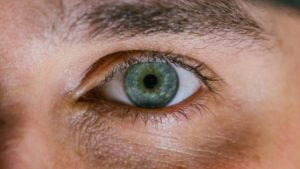The Diagnostic and Statistics Manual 5 of the American Psychiatric Association identifies two primary types of ADD/ADHD. The first type is related to experiencing symptoms of inattention and the second is related to experiencing symptoms of hyperactivity. To be diagnosed in adults, five out of nine of the symptoms must be present. San Diego Christian Counseling can assist with evaluation and support for ADD/ADHD.

Symptoms of inattention can be anything from missing details while writing, difficulty staying engaged in longer conversations, struggling to meet deadlines, absent mindedness when being directly addressed, an inability to remember where you left something, being easily distracted, or, having trouble completing repetitive tasks, such as filling out forms.
The other type of symptoms are related to impulsivity and hyperactivity. Those dealing with ADD/ADHD may manifest as predominantly inattentive, predominantly hyperactive, or at times both.
Symptoms of hyperactivity/impulsivity include trouble staying still, fidgeting, excessive talking, extended amounts of high energy, an inability to be patient in conversation, and interrupting others.
As an example, my past client had ADD as an adult. He grew up thinking he was just an irresponsible, lazy person because that’s what others thought of him.
He regularly missed deadlines, lost track of time watching TV, and even forget important appointments. He confessed to making someone wait twenty minutes because he was late. He told me he struggled a lot with procrastination. Work felt too overwhelming and tedious. He was more motivated by short-term, urgent projects, rather than larger, long-term projects.
Despite his seeming laziness, when the deadline drew nearer, he would stay up late and work diligently. Often, his work was so thorough that even Michelangelo would be impressed. What is amazing about ADD/ADHD brain, is that when it’s crunch time, it can work magic. Coaching and therapeutic guidance can further strengthen and refinine these skills by channeling those dealing ADD/ADHD to find times in the day where they aren’t as distracted.
I helped a specific client to improve his sleep cycles and increase the amount he slept. Although some boast of not needing sleep, sleep is necessary and will only make them more effective. Those dealing with ADD/ADHD are drawn to a lack of sleep because it increases their flow of adrenaline. But, while the short term effects may seem productive, their life is much much more balanced when they get the proper sleep, and they won’t face as much grogginess and apathy.
My specific client achieved great success, which was certainly related to the amount of sleep he was now getting. I recommended he make a structured bedtime. This may seem childish, but it is a way to ensure more sleep. Routine and rituals can aid those with ADD/ADHD. Adding things like exercise and a healthy diet will kick their ADD/ADHD superpowers into even greater action.
What are Your Superpowers?
ADD/ADHD doesn’t have to be a dysfunction. Instead, in can be a gift. Rather than a dysfunction, it might be better to think of ADD/ADHD as a great treasure, even a superpower. The neurology of ADD/ADHD is remarkable!
Here are a few of the perks:
Hyperfocus
 A unique ability to get ‘in the zone.’ When you are ‘in the zone’ thoughts and ideas flow together quickly translating into actions for hours. As a result, those with ADD/ADHD have the capability of accomplishing tons of work in relatively short amounts of time, with limited needs for breaks. To achieve this success, they must be interested in the work and be given proper scaffolding to direct their energy.
A unique ability to get ‘in the zone.’ When you are ‘in the zone’ thoughts and ideas flow together quickly translating into actions for hours. As a result, those with ADD/ADHD have the capability of accomplishing tons of work in relatively short amounts of time, with limited needs for breaks. To achieve this success, they must be interested in the work and be given proper scaffolding to direct their energy.
The Olympian, Michael Phelps, known for winning 13 individual and 23 team gold medals thanks ADHD for his success. He struggled with it since kindergarten. By the age of 9, he was formally diagnosed. At age 12 he asked to be taken off his medication and instead relied on the structure of his rigourous swim training and practices. His regular routines, exercise, and diet, helped him to channel his remarkable energy.
Phelps is known for his unceasing training schedule. It consists of 3-6 hours in the pool a day and dry land training 4-5 days a week. Structure is central to his life, and his swimming career attests to the effectiveness of his discipline.
Super Perception
It’s sort of like a gut sense. People with super perception are able to understand people and what is going on with very little direct information. They take in every meaningful detail of a situation, even though others might not pick up on the importance of such details. As a Christian, it is not uncommon for God to also grant spiritual discernment to the already heightened biological super perception.
Super perception also often results in better deductive reasoning. Those with ADD/ADHD describe the ability as a sort of mind reading. There is science behind the mind reading. Science estimates that the human brain breaks down the 11 million bits of information we sense into groupings of 40-50 bits per second.
This number is for the average brain. The ADD/ADHD brain is different. It can take in and sort more information because, alongside the conscious mind, the unconscious is also working at a faster rate than those without ADD/ADHD. The unconscious mind is what provides the innate, accurate ‘gut’ sense associated with super perception.
Super Imagination
 Imagination overflows from the ADD/ADHD brain. The imagination allows them to come up with solutions to complex problems that come from “outside the box.” Where most may see pieces of unrelated information, the ADD/ADHD sees a mosaic of connections, which is impossible to notice from a conventional perspective.
Imagination overflows from the ADD/ADHD brain. The imagination allows them to come up with solutions to complex problems that come from “outside the box.” Where most may see pieces of unrelated information, the ADD/ADHD sees a mosaic of connections, which is impossible to notice from a conventional perspective.
Solving problems need not be linear or bound by typical cause and effect relationships. The ADD/ADHD mind abounds with theta waves to keep them calm and relaxed. Their ability to remain calm affords them access to their subconscious and spiritual dimensions at a faster more efficient rate. Powerful insight, originality, cleverness, perception, resourcefulness, vision, and inventiveness are hallmarks of their tremendous gifting.
Where there is no revelation, people cast off restraint; but blessed is the one who heeds wisdom’s instruction. – Proverbs 29:18
While these are the three most prevalent super powers of ADD/ADHD, there are others. For example, the ADD/ADHD mind has the capability to jump right into projects and situations, in which other may be paralyzed. Or their ability and desire to rescue people from a crisis or uncertain predicament. There are many special traits related to the ADD/ADHD mind, but for now, we will discuss the most crucial: hyperfocus, super perception, and super imagination.
Harness the Power of Adult ADD
“With great power comes great responsibility.” – Uncle Ben
In order to fully access your superpowers, you will need to understand that you have an interest-based neurology. This means that if something interests you, then you will be able to work exceptionally hard on the topic and remain focused on it for long periods of time. Knowing this is how you work is key to accessing the full capacity of ADHD/ADD brain. For those with interest-based neurology, it is actually better to make your interests apart of your work.
If public speaking energizes you, then take on more speaking engagements and seek out opportunities to perform presentations. Figure out how to limit your distractions, so you can achieve your goal of delivering a well-crafted presentation.
Avoid negativity. For example, maybe a co-worker of yours is always complaining about work trips. Ditch the co-worker. Try to surround yourself with supportive and encouraging voices, who will help hone your skills.
Daily routines are very important. Exercise, a healthy diet, ample sleep, and spiritual disciplines are all ways of best accessing your superpowers of hyper focus, super perceptions, and super imagination. I’m a huge advocate for creating positive habits. Establishing these healthy rhythms will help you to get things done without even thinking about it.
Sensory overload can be a problem for the ADHD/ADD brain. To prevent this, try things like listening to music in order to drown out other noise or turn off your phone alerts. You can explain to your co-workers and associates why you are taking these precautions, so they will understand.
Peter Shankman, a business entrepreneur, and life coach describes several key concepts to harness your super powers in his book “Faster than Normal.”
 1) Clutter is like kryptonite is to Superman – A messy desk is a major distraction. You won’t be able to find things you need and will be tempted to reorganize often. Keep your space neat, clean, and organized, so you will be able to access what you need when you need it. Remember, you don’t need a flawless filing system, the main goal is just to avoid clutter. The process can be a simple as putting paperwork you rarely need into a different bin out of the way.
1) Clutter is like kryptonite is to Superman – A messy desk is a major distraction. You won’t be able to find things you need and will be tempted to reorganize often. Keep your space neat, clean, and organized, so you will be able to access what you need when you need it. Remember, you don’t need a flawless filing system, the main goal is just to avoid clutter. The process can be a simple as putting paperwork you rarely need into a different bin out of the way.
2) Get rid of choices – Mark Zuckerberg, CEO of Facebook, was onto something when he eliminated choices from his wardrobe. Sometimes having to many choices slows you down. If you really like wearing that shirt, then get a couple of them, so you can wear them throughout the week. There is no shame in wearing simple outfits you like, and it can even save you time.
3) Create deadlines in the daily, weekly, monthly, yearly – “And inasmuch as it is appointed for men to die once and after this comes judgment (Hebrews 9:27).” Time is short, and we are to value the time that the Lord has given us.
Part of the struggle of the ADHD/ADD brain is that it is difficult to begin a task. However, once you start, it is easier for you to finish because your brain loves closure. If you don’t have deadlines, then you never get closure. It will be helpful for you to work back and set a deadline for yourself. Then, go back to anticipate and allocate how much time you will need to complete the project. Remember to set realistic timelines, so you don’t find yourself staying up all night to complete an impossible task.
4) Delegate the small stuff – Why? Because if you don’t, then you will get sidetracked dealing with the small fish, while the big fish gets away. Remember that you are trying to take care of the big task. The task only you can perform. Let others help you tie up the loose ends, while you tackle the big thing. Learn to be willing to hand things off to others, especially when they are better at organizing and ordering. Then step back and be thankful that God gave us all different strengths
Conclusion
Celebrate being unique! It doesn’t have to be a curse, it can be a tremendous blessing. Learn about who you are and how you are uniquely wired through reflection on God and his word. Learn how you work. Don’t ignore God’s spiritual and biological gifting.
Accept God’s love and what he has for you, drink of it each day and remain motivated to accomplish the plans he has laid out for you. If you feel lost or overwhelmed, seek out a Christian counselor at San Diego Christian Counseling. Find how to live life the way God intended for you.
For we are God’s masterpiece. He has created us anew in Christ Jesus, so we can do the good things he planned for us long ago. – Ephesians 2:10
“Thinking,” courtesy of Jacob Botter, Flickr CreativeCommons (CC BY 2.0); “The Face Behind the Mask”, Courtesy of Joey Nicotra, Unsplash.com; CC0 License; “Eye Contact”, Courtesy of Jordan Whitfield, Unsplash.com; CC0 License; “Office”, Courtesy of Dan Gold, Unsplash.com, CC0 License


